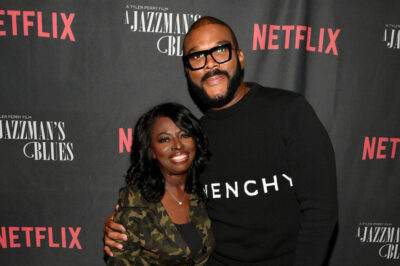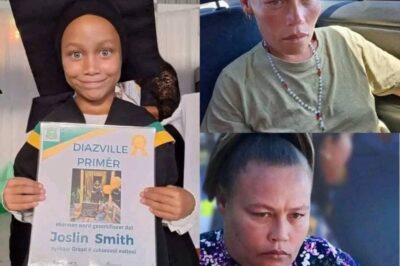Master KG and Nomcebo Zikode: The Controversy Behind “Jerusalema”
In the world of music, collaboration can be a double-edged sword. On one hand, it’s an opportunity for artists to come together and create something memorable, something that resonates with audiences across the globe. On the other hand, when success comes, so too can misunderstandings, accusations, and disputes. This is precisely what unfolded recently between two South African music stars, Master KG and Nomcebo Zikode, over the global phenomenon that is “Jerusalema.”
The Rise of “Jerusalema”
Released in 2019, “Jerusalema” quickly became a massive hit, sweeping across the globe and becoming an anthem for the world. The song’s infectious rhythm, catchy beat, and soulful melodies made it a favorite for dance challenges on platforms like TikTok and Instagram, helping it to climb the charts. The music video garnered millions of views, making it the most-watched African music video on YouTube. It wasn’t just the song itself that caught attention, but the global phenomenon that followed, with people from all corners of the world participating in the “Jerusalema” dance challenge. In short, it was a global hit, and its success was undeniable.

At the heart of “Jerusalema” is the combination of Master KG’s production and Nomcebo Zikode’s soulful vocals. Master KG, born Kgaogelo Moagi, was the producer and mastermind behind the track, while Nomcebo Zikode, a relatively unknown artist at the time, lent her voice to the powerful song. Their collaboration seemed like a perfect marriage of melody and rhythm, with Zikode’s soaring vocals adding depth and emotion to the track’s infectious beats.
The Dispute: Nomcebo Zikode’s Allegations
As “Jerusalema” grew in popularity, so too did the wealth and recognition it brought to Master KG. However, not everyone was happy with the outcome, especially Nomcebo Zikode. The artist recently took to Twitter to air her grievances, alleging that she had been robbed of the recognition and financial rewards that were rightfully hers. In a series of tweets, Zikode made it clear that she believed the song’s success was largely due to her vocals and that Master KG had taken credit for the track’s fame without adequately compensating her or acknowledging her contribution.
“Jerusalema is famous because of me and not Master KG. I was the one singing on that song and not Master KG. It hurts me to see that he made millions from that song and I was left struggling. Jerusalema is currently the most-watched music video in Africa and I was robbed!” Zikode tweeted. Her words struck a chord with many of her fans, who rallied behind her, expressing solidarity and support.

Zikode’s accusations were centered around the idea that Master KG had capitalized on the song’s success, profiting from it in a way that she felt was unfair. As the song became a global hit, Master KG gained international recognition, performing at prestigious events, receiving numerous accolades, and raking in substantial earnings. On the other hand, Zikode, who had contributed significantly to the song’s success, found herself in a less glamorous position, struggling financially and professionally despite her integral role in the track.
Her frustration boiled over in the public eye, leading her to confront Master KG directly on social media. Zikode argued that Master KG had used her vocal talent to propel his career while failing to properly credit her for the track’s success or offer her fair compensation.
Master KG’s Response: A Sharp Retort
In a quick and cutting reply to Zikode’s tweet, Master KG did not hold back. He responded with a remark that many saw as dismissive and combative: “Awume kancane wena nge cut ka Rebecca Malope.” Translated to English, the phrase roughly means, “You were given a small cut, just like Rebecca Malope.” This comment, referencing South African gospel singer Rebecca Malope, was perceived by many as a playful jab or an attempt to downplay Zikode’s complaints.
The comment left many in the music industry and on social media questioning Master KG’s attitude toward Zikode’s accusations. Some interpreted his response as an attempt to deflect attention from the issue at hand, while others saw it as a reflection of the tension that exists between the two artists. Regardless of the intention behind the statement, Master KG’s response seemed to have exacerbated the situation, further fueling the fire of public debate.
![Master KG feat. Nomcebo Zikode - Jerusalem [Live AMP Performance]](https://i.ytimg.com/vi/rOy6m5fGhtk/maxresdefault.jpg)
The Legal and Professional Ramifications
Zikode’s public outcry raises important questions about the business side of the music industry, particularly in relation to royalties, contracts, and the division of profits. It’s no secret that many artists, especially those working behind the scenes, often find themselves sidelined when it comes to sharing in the wealth and recognition that their work generates. In the case of “Jerusalema,” Zikode’s comments suggest that the singer feels her contribution has been undervalued, and her role in the song’s success has not been adequately acknowledged.
In the music industry, particularly in collaborations between producers and vocalists, the terms of contracts and royalty agreements can often be murky. If Zikode was not properly compensated for her work on “Jerusalema,” it would not be the first time a vocalist found themselves in such a position. The disparity between the recognition and financial rewards between producers and singers is a well-known issue in the music industry, and Zikode’s situation highlights the need for greater transparency and fairness when it comes to revenue distribution.
The dispute also raises questions about the role of producers and artists in a song’s success. While Master KG’s production undeniably played a significant role in the track’s widespread appeal, Zikode’s voice was equally central to its success. Both parties contributed to the song’s viral nature, yet the rewards have not been equally distributed. In a world where artists are often forced to navigate complex and sometimes exploitative contracts, Zikode’s outcry is a reminder of the power dynamics that can exist within the music industry.
The Bigger Picture: Gender and Power Dynamics in the Music Industry
Zikode’s complaints also draw attention to broader issues of gender and power dynamics within the music industry. As a woman, Zikode’s voice may have been overshadowed by the success and recognition that Master KG, as a male producer, has garnered. Women in the music industry have long faced challenges in gaining recognition and being compensated fairly for their work, and Zikode’s comments reflect the frustrations of many female artists who feel sidelined in a male-dominated industry.
The public feud between Master KG and Nomcebo Zikode is not just about a song—it is a reflection of the larger challenges that artists, particularly women, face in the music industry. Whether or not Zikode’s allegations are valid, they highlight a need for more equitable practices in terms of compensation, recognition, and credit in the industry.
Conclusion
The ongoing dispute between Master KG and Nomcebo Zikode over the success of “Jerusalema” brings to light important issues surrounding fairness, recognition, and the division of profits in the music industry. As the song continues to garner international acclaim, the tension between the two artists is a reminder of the complexities and challenges that come with fame and success. For Zikode, it’s not just about the money—it’s about acknowledgment and respect for the vital role she played in creating a global hit. As the debate continues, it’s clear that “Jerusalema” will remain a symbol of both musical brilliance and the complexities of the modern music industry.
News
Fox News’ Kat Timpf Outlines Next Steps Following Breast Cancer Diagnosis, Says ‘It’s Over’ Once She Recovers
The broadcaster shared her upcoming plans, which include “a double mastectomy” and “getting back in the gym” Kat Timpf. Photo: Omar Vega/Getty…
EXCLUSIVE: Today’s Sheinelle Jones to officially replace Hoda Kotb as Jenna Bush Hager’s co-host after she’s back from family leave
TODAY’s Sheinelle Jones is poised to officially replace Hoda Kotb as Jenna Bush Hager’s co-host after she returns from family…
Tyler Perry Pays Heartfelt Tribute To Angie Stone: ‘She Touched So Many Lives’
Tyler Perry Pays Heartfelt Tribute To Angie Stone: ‘She Touched So Many Lives’ As the entertainment world and music fans…
Witness Testifies Seeing Kelly Smith Dragging Joshlin into Shack Before Her Disappearance
Key Testimony Revealed in Western Cape High Court A crucial witness has testified in the Western Cape High Court regarding…
Joslin Smith Found After a Year-Long Search: A Nation Reacts to a Heartbreaking Case
In a major breakthrough, the South African Police Service (SAPS) confirmed the discovery of seven-year-old Joslin Smith, who had been…
The shocking story of the 8-year-old girl who survived the ZCC Moria bus accident that k!lled 45 people who were going to church. See here why she is the only one who survived & yet the other 45 people died.
8-Year-Old Girl Sole Survivor in Tragic Bus Crash That Kills 45 Easter Pilgrims in South Africa A Devastating Accident An…
End of content
No more pages to load












